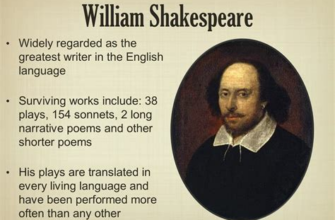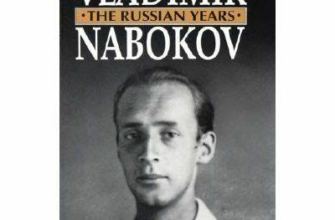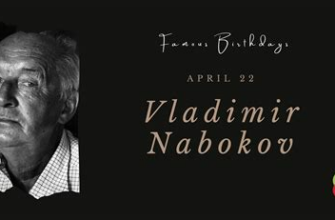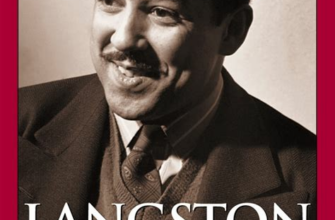In the realm of literature, there are certain figures that forever leave an indelible mark on the world. Their words, ideas, and creative endeavors continue to captivate and inspire generations to come. One such luminary was a distinguished German writer, whose name became synonymous with brilliance and artistic innovation. Born in the late 18th century, this influential figure left an enduring legacy that transcends time and place.
This extraordinary wordsmith possessed an unparalleled gift for storytelling and his works exuded a profound sense of depth and resonance. Infused with a rich tapestry of emotions and vivid imagery, his writings transported readers to different realms, enveloping them in a whirlwind of emotions and thought-provoking ideas. With his astute observations and remarkable insight into the human condition, he managed to uncover the universal truths that lie beneath the surface of existence.
Not only was he a masterful wordsmith, but he also channeled his creative energy into other artistic domains, making him a true polymath of his time. Through his exploration of different art forms, he was able to blur the boundaries between disciplines, creating a seamless fusion of literature, drama, and music. His multidimensional approach to creativity allowed him to push the boundaries of conventional artistic expression and imbue his works with an unparalleled sense of originality and authenticity.
Despite the undeniable impact of his written works, his intellectual contributions extended far beyond the realm of literature. He was a fervent believer in the power of education and devoted his life to the pursuit of knowledge. His insatiable curiosity led him to explore a myriad of subjects, ranging from natural sciences to philosophy and even politics. Through his relentless pursuit of intellectual growth, he not only enriched his own mind but also left a lasting imprint on the intellectual landscape of his time.

Early Life and Education of Johann Wolfgang von Goethe
In this section, we explore the formative years and academic journey of the renowned German writer and polymath, Johann Wolfgang von Goethe. This section delves into Goethe's upbringing, his educational background, and the influences that shaped his early life.
Born into a prominent family, Goethe's childhood was marked by intellectual curiosity and a thirst for knowledge. His early years were characterized by a strong passion for literature, philosophy, and the arts, laying the foundation for his later creative endeavors. Goethe's education played a crucial role in nurturing his intellectual growth and shaping his artistic sensibilities.
During his formative years, Goethe received a comprehensive education, covering various subjects such as languages, sciences, mathematics, and humanities. His educational journey began at home under the guidance of private tutors, where he developed a deep love for literature and poetry. Later, he attended prestigious schools and universities, immersing himself in a wide range of disciplines.
One of the pivotal moments in Goethe's education was his enrollment at the University of Leipzig, where he studied law, a subject that would later play a significant role in his professional life. However, it was during his time at the university that he discovered his true passion for literature and the arts, leading him to pursue a path filled with creativity and imagination.
Throughout his early life and education, Goethe encountered influential figures who left a lasting impact on his development. Mentors and professors instilled in him a passion for knowledge, encouraged his creative pursuits, and introduced him to invaluable works of literature and philosophy. These encounters not only shaped his intellectual growth but also ignited a fervent desire within him to contribute to the world of arts and letters.
In summary, the early life and education of Johann Wolfgang von Goethe were marked by intellectual curiosity, a strong educational foundation, and encounters with influential figures. These formative years laid the groundwork for his later achievements as a writer, philosopher, and artist.
Goethe's Literary Accomplishments and Contributions
In this section, we will explore the remarkable literary achievements and lasting contributions of one of the most influential figures in German literature history.
- Revolutionary Works: Goethe's literary contributions can be best described as groundbreaking and innovative. His works challenged traditional literary conventions and introduced new themes, styles, and forms of writing to the German literary scene.
- Masterful Versatility: Goethe's literary talents were vast and multidimensional. He excelled in various literary genres, including poetry, drama, novels, and essays. Each of his works showcased his versatility, as he effortlessly switched between different styles and voices.
- Exploration of Human Nature: Through his writings, Goethe delved deep into the complexities of human nature, capturing the essence of emotions, desires, and conflicts. His characters were intricately developed and portrayed realistic struggles and aspirations that resonated with readers.
- Nuanced Examination of Love and Relationships: Goethe's exploration of love and relationships in his works was profound and nuanced. He depicted the intricacies of romantic connections, addressing themes of passion, longing, betrayal, and sacrifice, creating timeless tales of love that continue to captivate readers.
- Epic Works of Art: Goethe's epic works, such as "Faust," stand as towering achievements in world literature. Through this magnum opus, he explored profound philosophical and existential questions, delving into the human quest for knowledge, morality, and the eternal struggle between good and evil.
- Cultural and Intellectual Influence: Goethe's literary achievements left an indelible mark not only on German literature but on the wider cultural and intellectual landscapes. His works inspired and influenced generations of writers, artists, and thinkers, shaping the development of Romanticism and German intellectual movements.
In summary, Goethe's literary accomplishments and contributions are a testament to his genius and creative brilliance. His revolutionary works, masterful versatility, nuanced examination of human nature and relationships, epic literary creations, and cultural influence solidify his position as one of the most prominent and enduring figures in world literature.
Goethe's Impact on German Literature and the Romantic Movement
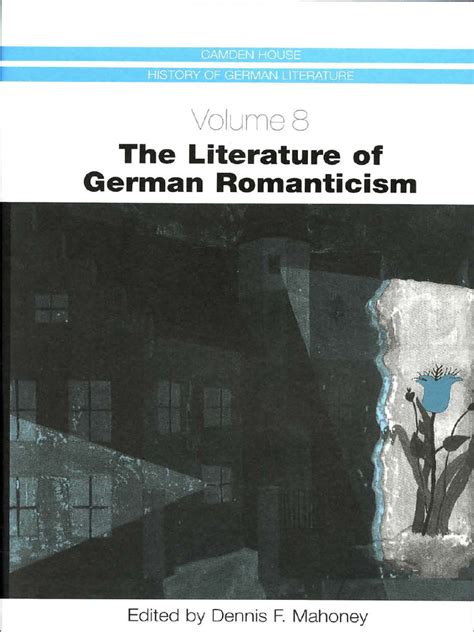
Examining Goethe's influence on German literature and the emergence of romanticism highlights the profound impact of his ideas and writings on the literary landscape. Through his revolutionary works and innovative approach to storytelling, Goethe played a pivotal role in shaping the direction and evolution of German literature during the Romantic era. This section will explore the ways in which Goethe's ideas, themes, and literary techniques influenced and inspired subsequent generations of writers.
Goethe's literary contributions revolutionized the German literary scene, sparking a movement that came to be known as romanticism. By placing a strong emphasis on individual expression, emotions, and the supernatural, Goethe's works challenged the traditional literary conventions of the time. His exploration of complex human emotions and the interplay between reason and passion resonated deeply with his contemporaries and paved the way for a new wave of literary expression.
One of the key aspects of Goethe's influence on German literature was his ability to transcend genre boundaries. He seamlessly blended elements of poetry, drama, and prose, creating innovative and dynamic works that captivated readers. His experimental approach to literature encouraged other writers to break away from rigid literary forms and explore new possibilities for artistic expression. This spirit of innovation and artistic freedom became a defining characteristic of the Romantic movement, which valued individualism and self-expression above all else.
Furthermore, Goethe's thematic exploration of nature, the human psyche, and the search for spiritual truth deeply resonated with the Romantic poets and writers who followed in his footsteps. His descriptions of the natural world, infused with vivid imagery and rich symbolism, inspired a generation of poets to celebrate the beauty and grandeur of nature in their own works. Moreover, Goethe's introspective examination of the complexities of human nature and the quest for self-discovery became central themes in much of the Romantic literature that emerged in the years after his groundbreaking works.
In conclusion, Goethe's profound influence on German literature and the Romantic movement cannot be overstated. His innovative approach to storytelling, exploration of complex emotions, and thematic depth have left an indelible mark on the literary landscape. Through his works, Goethe inspired and paved the way for subsequent generations of writers to explore new avenues of artistic expression, making him an enduring figure in German literary history.
FAQ
Who was Johann Wolfgang von Goethe?
Johann Wolfgang von Goethe was a German poet, novelist, playwright, and philosopher. He is considered one of the greatest figures in Western literature and is most famous for his play "Faust" and his novel "The Sorrows of Young Werther."
When was Goethe born?
Goethe was born on August 28, 1749.
What were some of Goethe's major works?
Some of Goethe's major works include "Faust," "The Sorrows of Young Werther," "Wilhelm Meister's Apprenticeship," and "Egmont."
What was Goethe's contribution to literature?
Goethe's contribution to literature was immense. He played a key role in shaping German Romanticism and his works explored deep philosophical and psychological themes. His works also had a major influence on other writers and thinkers, both within and outside of Germany.
Did Goethe have any significant accomplishments outside of literature?
Yes, Goethe had several accomplishments outside of literature. He was also a scientist and made important contributions to fields such as botany and geology. He served as a statesman and was involved in various political and administrative roles throughout his life.
